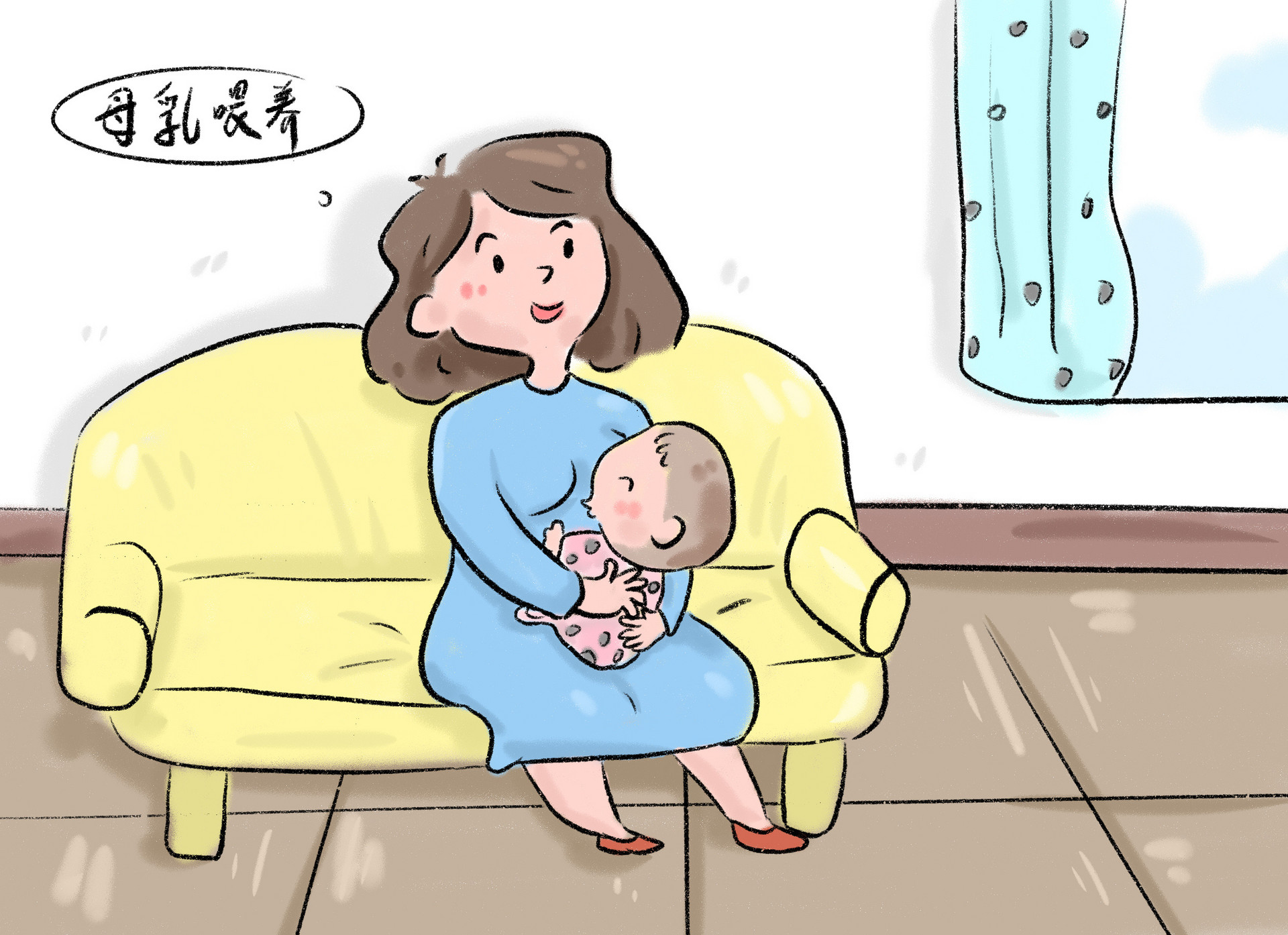Recently, Xie Yilin posted a photo of her stretch marks, immediately sparking a heated discussion among countless women. Because many moms have their own troubles, can stretch marks be prevented or completely removed? Let's see what traditional Chinese medicine experts have to say.
Can stretch marks be removed?
When pregnant mothers see their babies growing healthily in their bellies, they are filled with joy. However, when the stretch marks on their bellies keep increasing, it is natural to worry about whether stretch marks can be removed.
Generally speaking, once stretch marks appear, it is very difficult to completely remove them. However, they will gradually fade over time and usually turn white or silver-white. The specific color depends on the mother's skin tone. Stretch marks can be seen as a testament to a woman's transformation and a proof of happiness in becoming a mother.
Before, during, and after pregnancy, adopting proper care methods can help mothers get rid of stretch marks. Before and during pregnancy, eating foods rich in collagen protein and vitamin C helps maintain skin elasticity and prevents the stretch marks from extending. After giving birth, mothers who want to remove stretch marks can use skincare products and massage, as well as dietary supplements to improve skin elasticity and eliminate stretch marks.
How to prevent stretch marks?
1. Maintain a balanced diet.
During pregnancy, mothers should avoid excessive consumption of sweets and fried foods, and instead, supplement their diet with rich vitamins and minerals. Collagen fibers are composed of proteins, so eating foods rich in protein during pregnancy helps improve skin texture, increase skin elasticity, and prevent stretch marks.
2. Choose suitable skincare products.
Starting from the early stages of pregnancy, mothers can choose moisturizing lotions, olive oil, and massage creams that suit their bodies. Regularly massaging and applying these products to the areas prone to stretch marks (thighs, belly, buttocks) can prevent dryness of the epidermis, improve skin hydration, increase skin and muscle elasticity, and promote smooth blood flow. This has a significant effect on helping the muscles adapt to weight gain in the later stages of pregnancy and preventing the rupture of elastic fibers in the skin.
Many women are very concerned about stretch marks on their bellies. If they wear low-rise pants or clothes that expose their navels, stretch marks are easily visible and can be quite unsightly. Therefore, when women discover stretch marks on their bellies at 38 weeks of pregnancy, they can reduce the formation of stretch marks by eating fruits and vegetables and applying moisturizing lotions. However, it is best to take preventive measures in the early stages of pregnancy.
Foods to be cautious of during pregnancy
1. Aloe: According to data provided by the China Society of Food Science and Technology, excessive consumption of aloe juice during pregnancy can cause abdominal pain, vomiting, bleeding, and even miscarriage.
2. Coix seed: Traditional Chinese medicine believes that coix seed is slippery in nature and can stimulate uterine smooth muscles, potentially inducing contractions and the possibility of miscarriage, so it should be consumed with caution.
3. Soft-shelled turtle: Soft-shelled turtles have a salty and cold nature and have a strong effect on promoting blood circulation and dispersing blood clots. Therefore, they have a certain risk of inducing abortion, so pregnant women should be cautious when consuming them.
5. Purslane: Purslane has a cold and slippery nature and has a significant stimulating effect on the uterus. It can increase the frequency and intensity of uterine contractions, leading to miscarriage, so it should be consumed with caution.
6. Apricot and almonds: Due to the heavy fetal heat and qi during pregnancy, pregnant women should generally consume light food. Excessive consumption of apricots can cause internal heat, so pregnant women should be cautious.
7. Chili: Eating a moderate amount of chili is beneficial for the intake of comprehensive nutrients. However, excessive consumption of chili can stimulate the stomach and intestines, causing constipation and increasing blood flow. If there is placenta previa, it should be strictly avoided.











